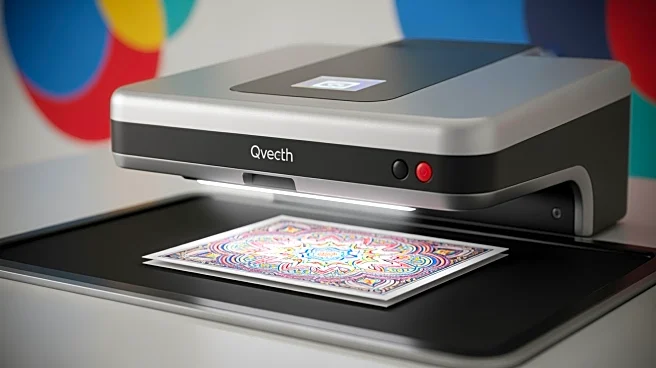What's Happening?
Online shopping platform Temu has agreed to collaborate with the greeting card industry to expedite the removal of plagiarized designs from its site. This decision comes after card companies reported significant
losses due to the unauthorized use of their copyrighted images, which were being sold as cheap imitations. Designers have likened the process of removing these listings to a 'whack-a-mole' game, as copied products often reappear shortly after being taken down. Temu has stated that protecting intellectual property is a top priority and is encouraging sellers to participate in a trial of a new takedown process specifically tailored for the greeting card industry. Amanda Mountain, co-founder of Lola Design, discovered that nearly all of her designs had been copied and sold by other vendors, leading to substantial financial and emotional impacts. The Greeting Card Association (GCA) has pressured Temu to implement a bespoke takedown process, which promises quicker removal of stolen designs and prevents their re-uploading.
Why It's Important?
The implementation of a faster takedown process by Temu is significant for the greeting card industry, which has been struggling with intellectual property theft. This move could help protect the creative work of designers and prevent financial losses caused by counterfeit products. The new system, which uses AI to log and protect original designs, represents a step forward in safeguarding intellectual property rights in the digital marketplace. By reducing the time and effort required to remove plagiarized listings, designers can focus more on their creative processes rather than on legal battles. This development may also set a precedent for other online platforms to enhance their intellectual property protection measures, benefiting various industries facing similar challenges.
What's Next?
Temu's new takedown process is currently in a trial phase, with the Greeting Card Association monitoring its effectiveness. If successful, this system could be expanded to other product categories facing similar intellectual property issues. The greeting card industry will likely continue to advocate for stronger protections and may collaborate with other online platforms to implement similar systems. Designers and card companies will be watching closely to see if the new process effectively reduces the prevalence of counterfeit products and protects their creative work. The broader impact on online marketplaces could lead to increased pressure on other platforms to adopt similar measures, potentially reshaping the landscape of digital commerce.
Beyond the Headlines
The ethical implications of intellectual property theft in the digital age are profound, as it challenges the value and recognition of creative work. Designers invest significant time and emotional energy into their creations, and the unauthorized use of their work can be demoralizing. The new takedown process not only addresses the financial aspect but also acknowledges the emotional toll on creators. This development highlights the need for ongoing dialogue about the balance between accessibility and protection in digital marketplaces, as well as the role of technology in enforcing intellectual property rights.










